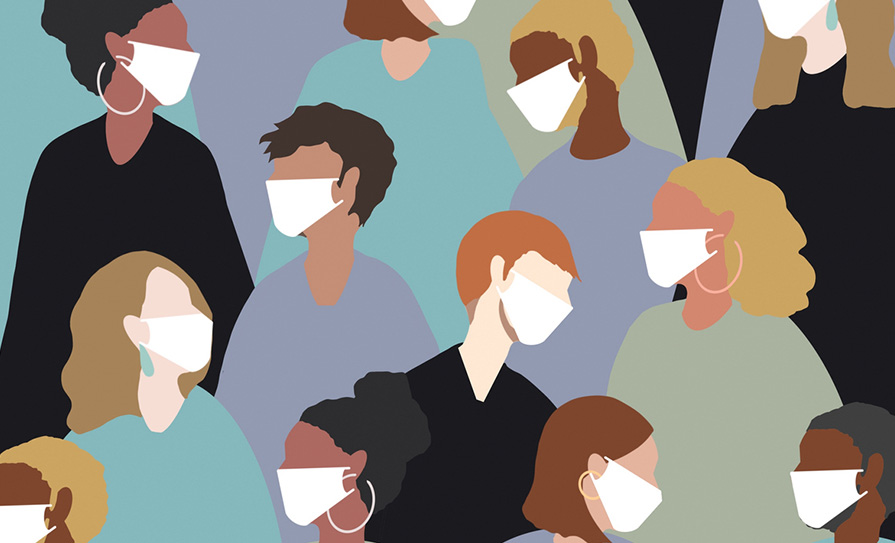
Admitting we could have done better, while recognising our limitations, mitigates against repeating mistakes
“We wanted to protect all the old people.
But what did all the old people want?”
The above quote is from Prof Martin Cormican, a man who has received a lot of publicity recently for sharing his reflections on Ireland’s response to the Covid-19 pandemic. The statement, startling in its simplicity, stopped me in my tracks when I first read it. What indeed did the old people want and why did we not think to ask them? Prof Cormican’s reflections are published in a conference paper from October 2022. Among other things, he discusses school closures and the withdrawal of services for children with special needs and asks that we consider the possible negative consequences of these actions.
While acknowledging that Ireland experienced fewer Covid-19 cases and deaths than comparable countries, Prof Cormican is not afraid to explore how we achieved this and to compare our response to the pandemic to “what it ought to have been” – a reference to Jane Austen’s Sense and Sensibility. The novel is the story of two sisters, Elinor and Marianne. Marianne behaves less than admirably and entertains a certain Mr Willoughby without a chaperone. She soon regrets her actions and towards the end of the book Elinor asks: “Do you compare your conduct with his, Marianne?”
Marianne replies: “No, I compare it to what it ought to have been.”
The full paper, entitled, ‘The Marianne Dashwood Test’ is available on ResearchGate. It is an accessible and thoughtful essay. The fact that the author was in the privileged position of being a member of the national public health emergency team, responsible for advising the Government on navigating the crisis, means that he is passing judgment on his own conduct as much as on anyone else. The paper is also informed by personal experience.
In an interview with Brendan O’Connor on RTÉ, Prof Cormican told how his mother died in a nursing home during the pandemic. Up until the time of her admission, she had requested that her family continue to visit her. The quality of her days was more important to her than the quantity. Once she became a nursing home resident, this request was denied.
Normally, I would be quite dismissive of such retrospective judgement and analysis, cautiously suspecting either attention-seeking behaviour or a specific agenda. I realise that this does not show me in a particularly good light, but it is the truth. What caught my attention this time was not the message, but the messenger. Martin Cormican was a classmate in college. While I have only met him a handful of times in the past 35 years, my abiding impression of him is an intelligent, logical thinker, who is kind, thoughtful, committed to learning, and the wise application of knowledge. A person of integrity, who never sought the limelight. (The sudden awareness of this, until now, unconscious negative bias towards experts that I do not know has given me lots to think about, but that is for another day.)
Reflecting on our actions is how we learn. Being prepared to balance the positive with the negative. Admitting “I ought to have done better”, while recognising our limitations, mitigates against repeating mistakes. Sometimes, to improve, we must open the can and examine the worms.
The Dashwood report is worth reading, as much of what it contains can be applied to many areas of our personal and professional lives. As doctors we rely on science to guide our actions. But, as Prof Cormican points out, science is value neutral and must be guided by human values. Those applying the evidence must first decide what values are important. While it was important to measure rates of infection and deaths from Covid-19, it should have been equally valuable to quantify the effects of prolonged isolation and loneliness on those whose days were numbered, even before the virus appeared.
It should have been possible to collect data on the short- and medium-term effects of school closures and withdrawal of day care centres for children with special needs. This might have resulted in a speedier return to some sort of normality for those who are still suffering the effects of this isolation and lack of stimulation. The four pillars of clinical ethics – autonomy, non-maleficence, beneficence, and justice – appear to have been set aside in the fearful scramble for safety. But, as Prof Cormican points out, fear is not a good motivator of human behaviour and science is best served with a generous portion of kindness and compassion.
I am grateful to Prof Cormican for his generosity in sharing these insights. And just for the record, in the event of another pandemic in my lifetime, I am asking whoever is in charge to please let me see my grandchildren.





Leave a Reply
You must be logged in to post a comment.